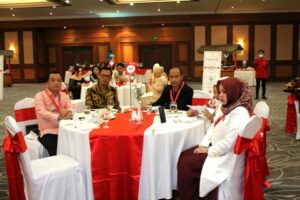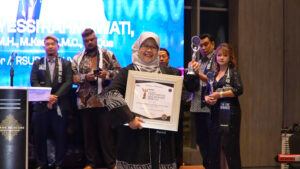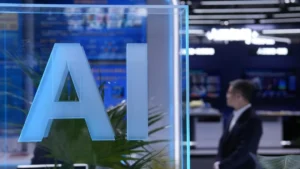The business world has lost one of its most respected and influential figures with the passing of Ratan Tata at the age of 86. The Tata Group, which he led for more than two decades, announced his death, marking the end of an era for Indian industry and global business alike. His leadership was instrumental in transforming the Tata Group from a domestic industrial conglomerate into a globally recognized entity with annual revenues exceeding $100 billion.
Ratan Tata was known for his ethical leadership, humility, and deep commitment to social causes. He was not only a titan of Indian industry but also a visionary leader whose influence extended far beyond the borders of India.
The Architect of Tata Group’s Global Expansion
Ratan Tata’s tenure as chairman of the Tata Group was marked by bold and strategic moves that significantly expanded the company’s global footprint. One of his most notable achievements was the acquisition of British car brands Jaguar and Land Rover in 2008. This purchase, which was initially met with skepticism, proved to be a masterstroke, as Tata managed to turn around the fortunes of both brands, transforming them into profitable and globally admired names.
Earlier, in 2007, Tata Group made headlines with its $13 billion acquisition of Corus Steel, a move that cemented its place in the global steel industry. The conglomerate’s purchase of Tetley, a British tea company, further showcased Tata’s ability to diversify and compete on the global stage. These acquisitions were not just business deals; they represented Tata’s vision of positioning Indian companies as serious contenders in the global marketplace.
UK Business Secretary Jonathan Reynolds hailed Tata as a “titan of the business world” and emphasized his significant contributions to British industry. “He played a crucial role in shaping British manufacturing and creating jobs,” Reynolds noted, highlighting the far-reaching impact of Tata’s leadership.
A Humble Leader with Global Recognition
Despite his enormous success, Ratan Tata remained a humble and reserved man. He owned less than 1% of the Tata Group, yet his influence on the company and the global business community was undeniable. A 2011 profile in The Economist described Tata as “the most powerful businessman in India” while praising his modesty and integrity. The article underscored how Tata’s leadership had transformed the Tata Group into “a global powerhouse” while maintaining the values of corporate responsibility and ethical governance.
Throughout his career, Tata emphasized the importance of giving back to society. The Tata Trusts, which control a significant portion of the Tata Group’s shares, have donated billions of dollars to philanthropic causes ranging from education and healthcare to rural development and environmental sustainability. Under Tata’s leadership, the group’s commitment to social welfare became as well-known as its business achievements.
Indian Prime Minister Narendra Modi paid tribute to Tata, calling him a “visionary business leader” and a “compassionate soul.” Modi expressed his deep sorrow over Tata’s passing, recalling their numerous interactions and describing him as “an extraordinary human being” who left an indelible mark on India’s economic landscape.
A Lifelong Commitment to Excellence
Born in 1937, Ratan Tata grew up in a traditional Parsi family, where values of hard work, humility, and service to society were deeply ingrained. He studied architecture and engineering at Cornell University before returning to India to begin his career at Tata Industries in 1962. Over the next several decades, Tata held key roles in various Tata companies, including Tata Steel, Tata Consultancy Services, and Nelco, before taking over as chairman from his uncle, JRD Tata, in 1991.
Tata’s leadership was characterized by a forward-looking vision, and he often spoke of his predecessor, JRD Tata, as a mentor who had a profound influence on his approach to business. “He was like a father and brother to me,” Tata once said, reflecting on the deep personal and professional bond he shared with his uncle.
In recognition of his contributions to Indian industry, Tata was awarded the Padma Vibhushan, India’s second-highest civilian honor, in 2008. His leadership extended beyond business, with his philanthropic endeavors touching millions of lives across India.
A Personal Life Marked by Simplicity and Passion
Ratan Tata was known for his personal humility and simple lifestyle, despite being one of the wealthiest and most influential businessmen in the world. He was a lover of fast cars and airplanes, and he often piloted his own aircraft. His love for speed extended to his early years as a scuba diving enthusiast, a hobby he gave up later in life due to health concerns.
Tata’s affection for animals, particularly dogs, was well-known. He often spoke about the emotional bond he shared with his pets, describing them as his constant companions throughout the years. In a 2021 interview, Tata expressed the sorrow he felt when his pets passed away but also acknowledged that he could never live without them for long, frequently adopting new dogs to fill the void.
In 2022, a video of Tata driving a Tata Nano, one of the world’s cheapest cars, went viral on social media, capturing the essence of his humility. Despite the commercial failure of the Nano project, Tata’s vision of creating an affordable car for the masses symbolized his commitment to innovation and social responsibility.
A Lasting Legacy
Ratan Tata’s passing marks the end of an extraordinary life and career, but his legacy will endure for generations. He will be remembered not just for his business acumen and global influence but for his unwavering commitment to ethics, philanthropy, and humility. His vision of building a better world through responsible leadership will continue to inspire future generations of entrepreneurs and business leaders.









